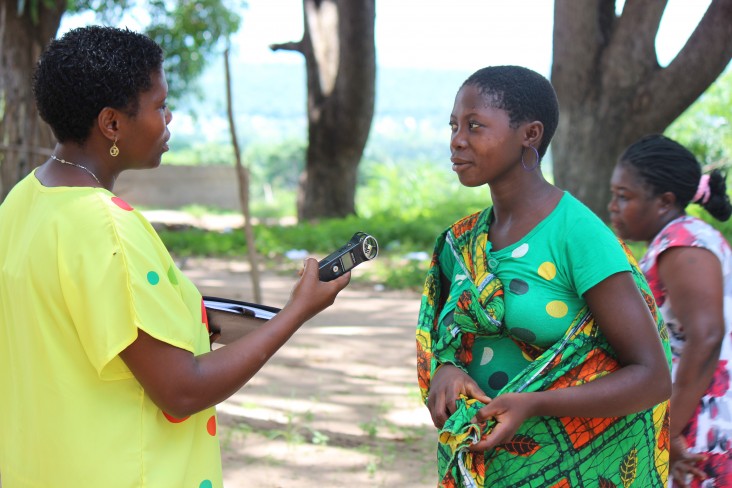
May 2016—Mozambique has the 10th highest incidence of early marriage in the world. It is estimated that 48 percent of girls are married by the age of 18, and some 14 percent by the age of 15—below the legal age of consent established by Mozambique’s family law. Early marriage violates the rights of children, perpetuates gender inequity, and is often accompanied by early pregnancy, which carries increased health risks for both mother and child.
With the support of USAID’s Media Strengthening Program, local radio stations and town leaders have mobilized to inform communities about the myriad risks of early marriage and provide lifesaving information for women and their families already deeply affected by this epidemic.
In Macomia district of the northern province of Cabo Delgado, Ana Paulo, now 16, became pregnant at the age of 13. The father refused to acknowledge the child, and her parents expelled her from their family home, rejecting her and her child. Her grandmother finally took her in, and Ana started learning about computers and volunteering at the local radio station, where she also started producing original radio programs about pregnancy and women’s health.
“Here in the district of Macomia, the number of early marriages is alarming,” explained Amade Abubacar, editor-in-chief of the Macomia community radio station. “Young girls forced to marry often become pregnant, and consequently drop out of school and do not get an education. This affects our community negatively.”
The Macomia community radio station produces the Woman’s Voice radio program, on which local women leaders offer personal stories of overcoming the challenges of early marriage and share words of empowerment for other young women looking for ways to improve their lives and the lives of their families.
“With the help of the program Woman’s Voice, my self-esteem increased,” says Ana.
Macomia community radio broadcasts the program weekly and has hosted a number of high-profile guests, including local women judges and women members of the provincial assembly.
“[Listening to the radio] helped me start doing business and return to school after I gave birth,” Ana explains. “I had an early pregnancy, but that doesn’t mean I am a worthless person,” she says. “I am going to continue to study.”
Ana has successfully finished 12th grade and continues to work at the community radio station.
The Media Strengthening Program, which runs from 2012 to 2017, is implemented by the International Research and Exchanges Board, or IREX. The program aims to develop an open, diverse and self-sustaining Mozambican media sector that promotes debate, accountability and development. Among other activities, the program supports 32 community radio stations, reaching an estimated 9 million Mozambicans.
LINKS
Follow @USAIDMozambique, on Facebook, on, on YouTube







Comment
Make a general inquiry or suggest an improvement.